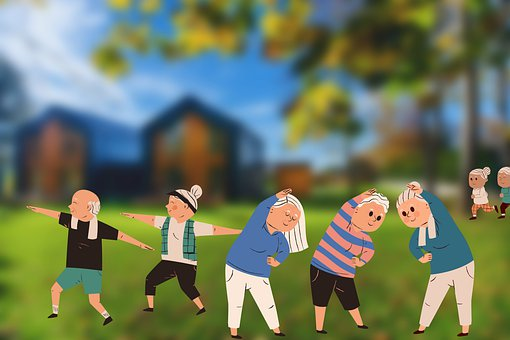
Alleviating 4 Common Health and Aging Stressors for Seniors
Aging is a natural part of life, but it brings on so many changes that it can be stress-inducing. How do you prepare for retirement and beyond? Here, we’ll go over four common stressors seniors and retirees are faced with and how to cope:
Retirement Savings
An estimated 25% of Americans don’t have any retirement savings, and social security benefits won’t suffice to cover their expenses in their golden years. Whatever your situation is, consulting with a financial planner or advisor may help ease some of your concerns. If you started a little nest egg early on in your career, check out how much you’ve earned in compound interest. Add your employer’s 401(k) contribution, and see where you stand financially. You may also be eligible to receive a pension, so check with HR or your former employer what benefits you or your spouse are entitled to. Downsizing and moving into a smaller home will also help you save money after you retire.
Housing
Some seniors dislike the idea of moving into a retirement community or a nursing home, whereas for others, the cost of such facilities is just too prohibitive. If you’re still fairly independent, aging in place may be the most practical and economical solution for you. Just make sure the inside and the outside of your house are safe to navigate, and plan for contingencies with large doorways that allow for wheelchair access, handrails and grab bars in the bathroom, and secure rugs to prevent falls. Install motion sensor lights outside the perimeter of your house as well as in dark hallways and stairways inside your home. Keep your front yard clear of debris, and make sure your house number is clearly visible from the street in case you need to call emergency services.
Health Insurance
Navigating the healthcare and insurance waters in the US isn’t for the faint of heart. For most seniors, Medicare usually offers the best benefits at the cheapest price. And if you are low-income, Medicaid is a popular free or low-cost option. When comparing insurance plans, weigh the pros and cons and pick the one that best suits your situation. Pros include no or low deductibles, free preventive care, affordable generic options for medication, and a large network of doctors and medical facilities accepting your plan. Cons would be high deductibles and a narrow network of providers, which would make it harder to see the specialists you need and to get second opinions.
Physical and Cognitive Health
Heart disease, visual changes, hearing impairment, and chronic illnesses become more prevalent as people age. Bones become more brittle, and reaction times get slower. All these changes can be scary, but with a regular fitness or exercise routine, you can stay strong, keep your balance and improve both your posture and your outlook on life. Make time to exercise your brain as well with crossword puzzles, word searches, and other activities that engage your mind. Make walking part of your daily routine and stay active within your community to avoid social isolation. If you have diabetes, strive to eat healthier and get regular checkups to screen for and prevent diseases.
Whether you age in place or you move into a retirement community, staying active will help you remain healthy. Make the best decisions for yourself by consulting with advisors and weighing the pros and cons before you make a move. And stay connected with other seniors who share your interests to make the most of your retirement!
Image via Pixabay

